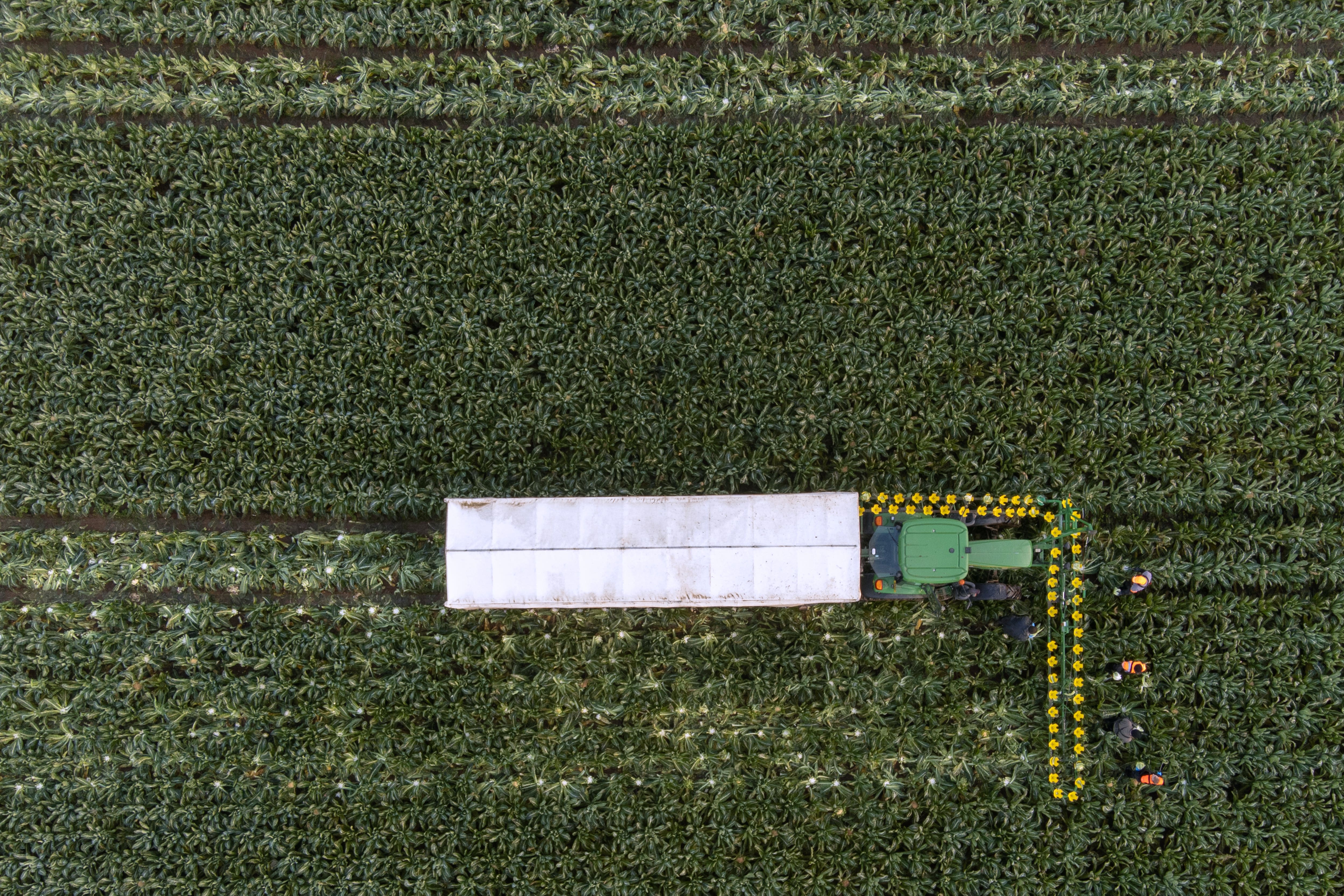‘Government undermining food security by not supporting farmers’
A policy think tank is calling for a £2.4bn annual investment to help food producers switch to more sustainable practices.

The Government is failing to support sustainable farming, which undermines the UK’s food security, researchers have said.
Analysis from the think tank Institute for Public Policy Research (IPPR) has found that droughts, rising temperatures and increasing numbers of pests and disease – all features of climate change – are plaguing UK food producers.
It said there is an urgent need to transform the UK’s food system to reduce greenhouse gas emissions and halt the destruction of nature, which as a result would improve farmers’ ability to produce food.
Food poverty, as well as wastage, is also damaging the health of the UK public and its environment, and the Government needs to take a leading role in transforming the system, the researchers said.
Post-Brexit trade deals are undermining UK farmers and the country’s climate goals while offshoring the UK’s carbon footprint, they added, while supermarkets are dominating the market, buying at discount and selling at high volume, leaving producers with too little of the final price paid by the consumer.
The evidence is crystal clear: protecting our planet, boosting farmers’ livelihoods and food security go hand in hand
IPPR researcher Lesley Rankin, co-author of the report, said: “The climate and nature crisis poses one of the greatest risks to the UK’s domestic food production and the UK Government has consistently failed to treat this threat with the urgency it deserves.
“If we are serious about ensuring food security and leaving our environment in a better state than we found it for generations to come, it is crucial we act immediately and involve farmers and communities every step of the way.
“The evidence is crystal clear: protecting our planet, boosting farmers’ livelihoods and food security go hand in hand.
“Now it’s on the Government to act to put us on a path that provides a better life for us all.”
As part of their investigation, the researchers spoke with farmers from three counties – Cumbria, Kent and Somerset – to get a picture of the challenges and opportunities they face.
They said nature-friendly practices are having a positive impact on their businesses as well as the environment, but the Government is not adequately supporting farmers in making a sustainable transition.
Environmental Land Management Schemes (Elms) are currently replacing the old system of farming subsidies, which paid farmers an amount of money related to the size of land they worked without regard for its impact on nature or climate.
The new system is designed to reward farmers for switching to more nature-friendly practices such as maintaining hedgerows, but the IPPR said the schemes are failing to win the confidence of farmers with concerns that public money is not being spent effectively enough.
The IPPR also said that Government regulation is failing to penalise the worst polluters because it has underfunded the Environment Agency by nearly £1 billion over the last 12 years.
They want a “robust intervention” from the Government, which would provide £2.4 billion a year in support for farmers in England over the next decade to help them improve nature and eliminate greenhouse gas emissions.
Trade deals should also ensure that imported food aligns with UK standards on environment, welfare and safety as well as workers’ rights.
And food partnerships should be set up in local areas to increase the market for healthier food that is also more beneficial to nature and the climate, the researchers said.
The Government must provide long-term financial support for the transition, and strengthen trade policy to guarantee environmental and worker standards
Luke Murphy, co-author of the report and head of the fair transition unit at IPPR, said: “The lack of a Government strategy for our food and farming sector has serious consequences.
“It’s undermining our ability to produce food domestically, making farmers’ lives harder, and entrenching a food system that is wasteful, bad for our health, and damaging to the environment.
“The Government must provide long-term financial support for the transition, and strengthen trade policy to guarantee environmental and worker standards.
“It must protect British farmers from being undercut by food produced to lower standards abroad.”
A Government spokesman said: “We are committed to backing our farmers so we can grow our economy, protect nature and deliver the food security that is needed.
“We have embarked on our next steps to deliver this, by committing to maintain the £2.4 billion annual farming budget and investing in productivity and innovation on farms.
“Together this action will move us away from ineffective EU policies and instead support British farmers to take actions that help produce food sustainably.
“We have also always been clear that we will not compromise the UK’s high food safety and animal welfare standards in trade negotiations so as to protect British farmers and native food production.”
Subscribe to Independent Premium to bookmark this article
Want to bookmark your favourite articles and stories to read or reference later? Start your Independent Premium subscription today.
